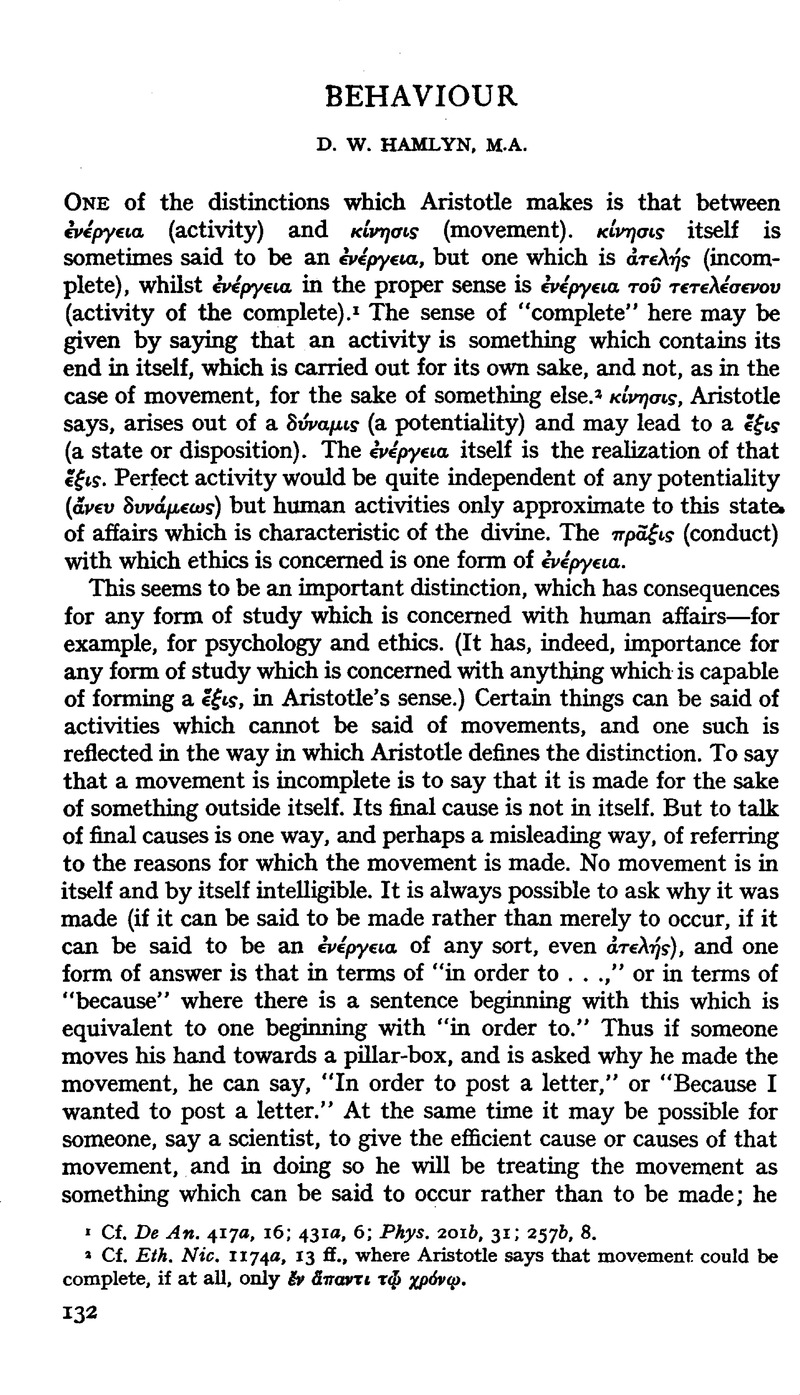Article contents
Behaviour
Published online by Cambridge University Press: 25 February 2009
Abstract

- Type
- Articles
- Information
- Copyright
- Copyright © The Royal Institute of Philosophy 1953
References
page 132 note 1 Cf. De An. 417a, 16; 431a, 6; Phys. 201b, 31; 257b, 8.
page 132 note 2 Cf. Eth. Nic. 1174a, 13 ff., where Aristotle says that movement could be complete, if at all, only ἒν ἅπαντι τᾧ χρόνῳ.
page 135 note 1 Cf. De An. 4176, 18 and Eth. Nic. 1174a, 14.
page 135 note 2 Especially Met. 10486, 23 ff. δρᾷ ἅμα >κα ωρακε<, κα ϕρoνεῖ >καπεϕρόνηκε<, κα νoεῖ κα νενόεηνκ. λλ’ oὐ μανθνει κα μεμθηκεν oὐδ’ ὑγιζεται κα ὑγίασται…. τoύτων δή >δεǖ< τς μέν κινήαεις λέγιν, τς ένεργεας.
page 137 note 1 πρζεως μν oὑν ρχ πρoaίρεσις—δθεν κνησις λλ’ oὐχ oὖ ἕνεκα.
page 139 note 1 Cf. some of the things said by Gellner—Maxims, Mind, 1951.
page 140 note 1 This amounts to a modification, perhaps an important one for some purposes, of what Ryle says on mechanism (Concept of Mind, p. 75 ff.), though in other ways it will be obvious that this account is in line with his.
page 142 note 1 Eth. Nic. 1110a, 4 ff., 4.
page 143 note 1 Ethics and Language, p. 314.
page 145 note 1 Cf. Hare—Imperative Sentences, Mind, 1949. Also his article in P. A. S. Supp., Vol. 1951.
page 145 note 2 As seems to be maintained by Hare—P. A. S. Supp. Vol. 1951.
- 8
- Cited by


